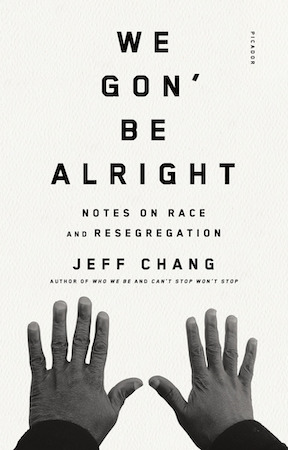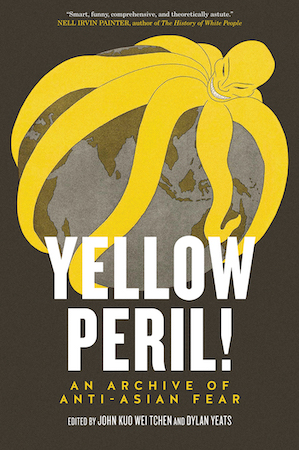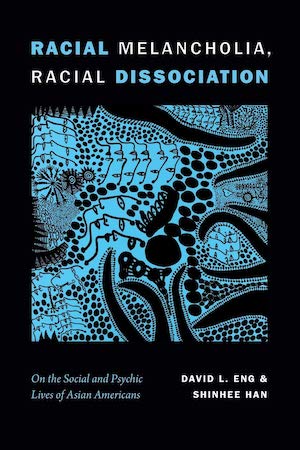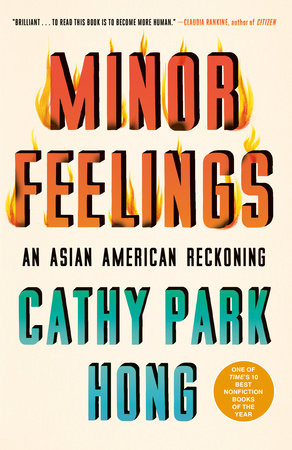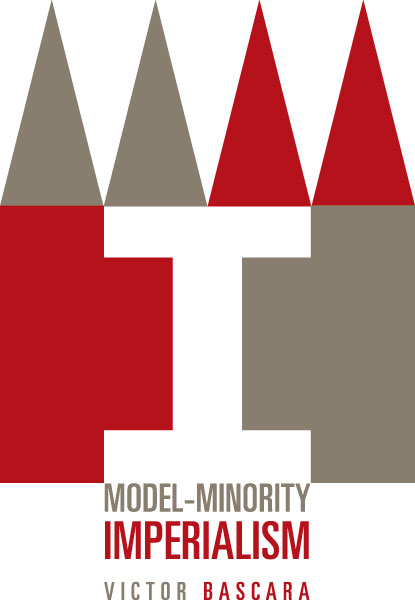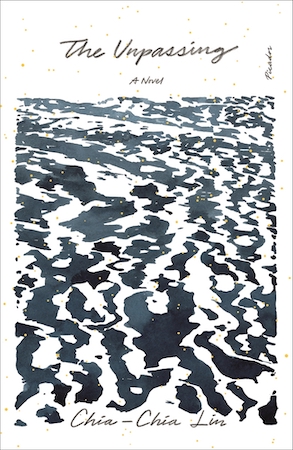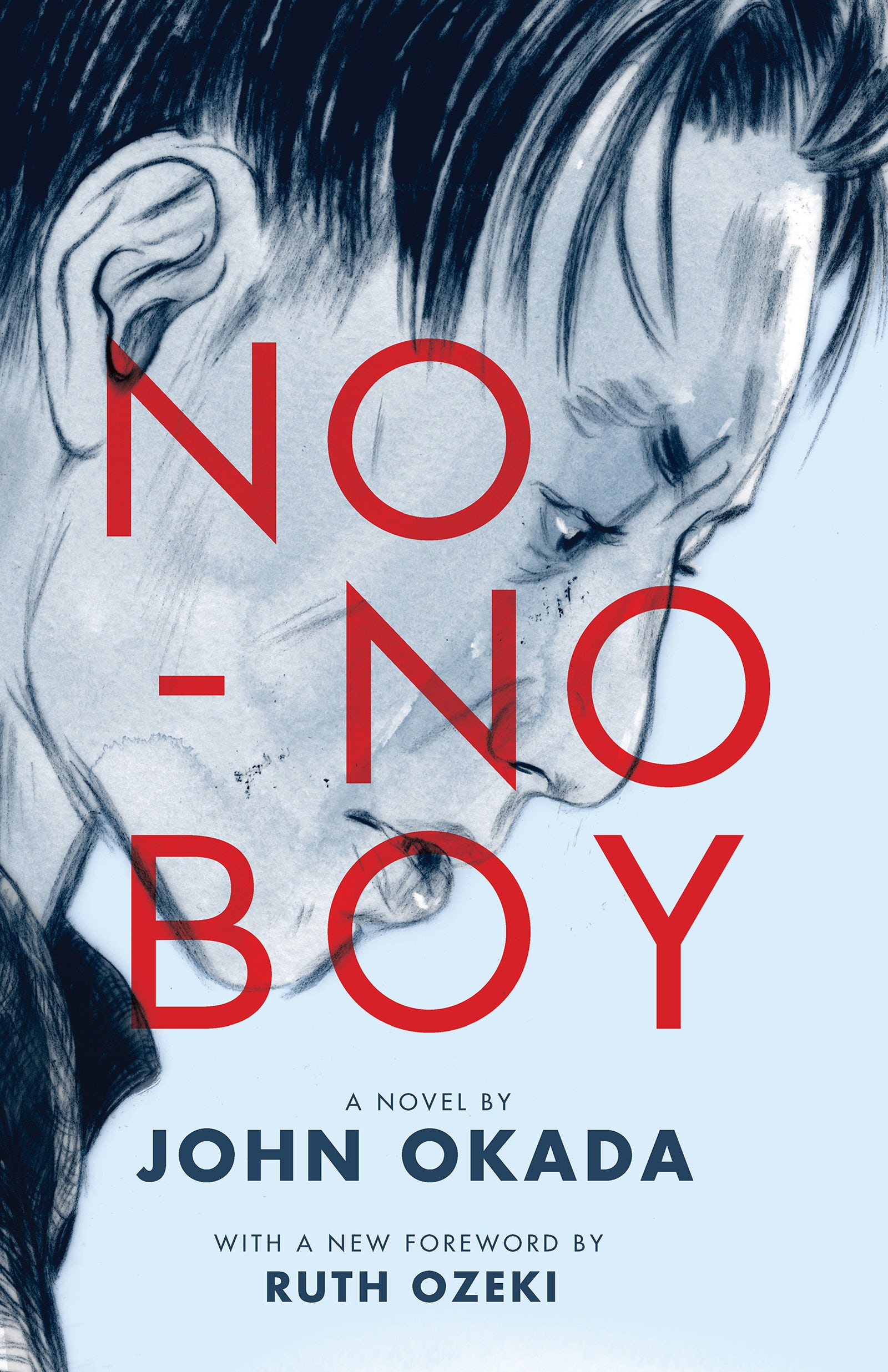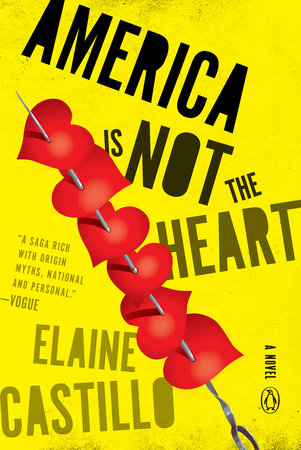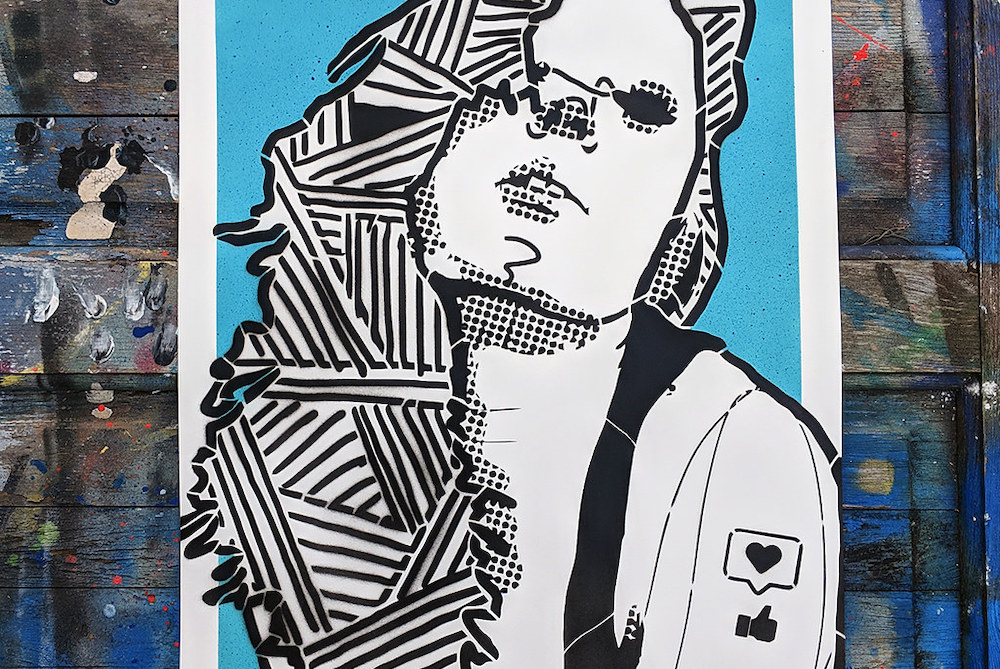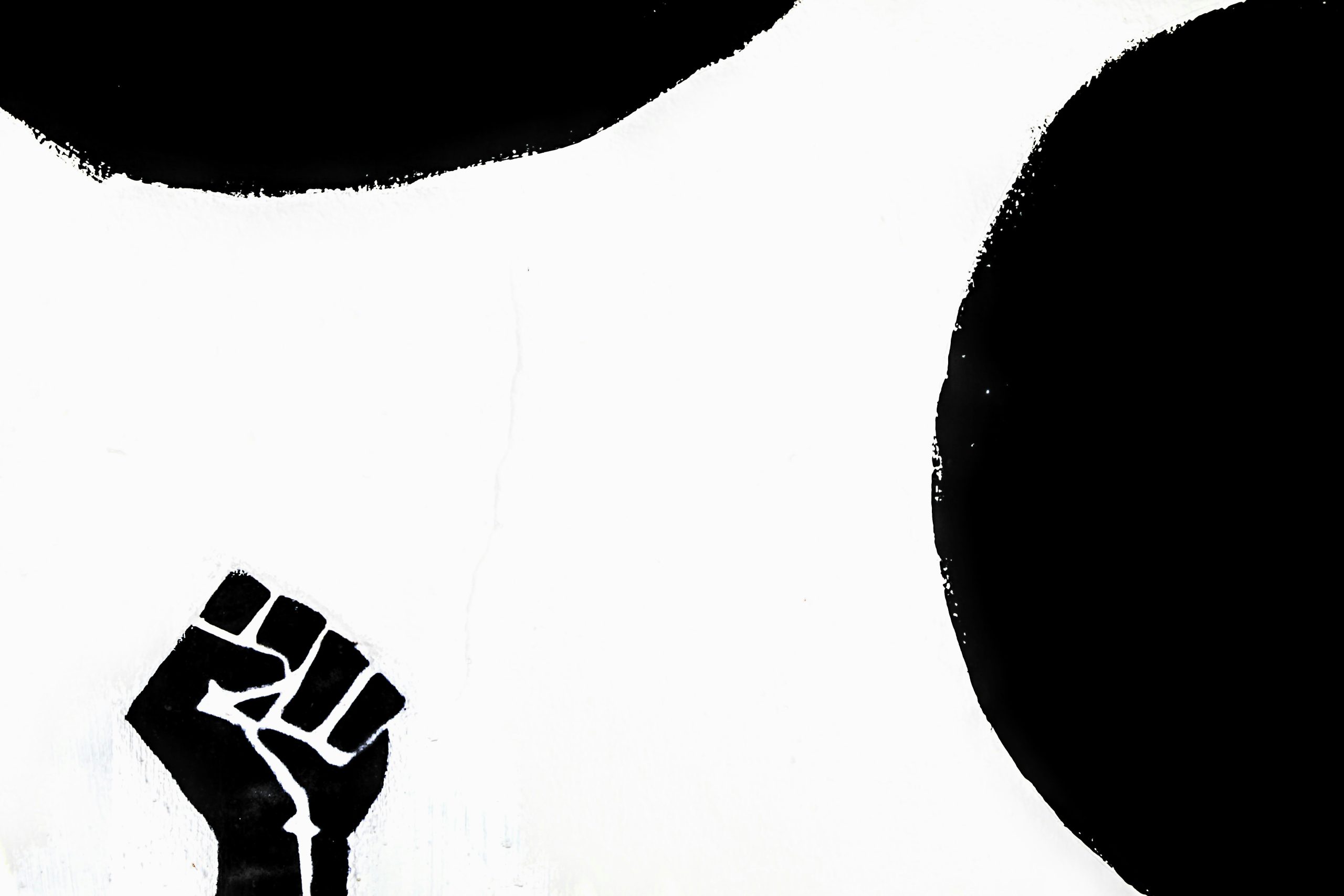Reading Lists
A Literary Guide to Combat Anti-Asian Racism in America
Anti-Asian violence and discrimination has increased precipitously, but it has a long history in the United States

In the last year, the Asian American community has seen an onslaught of verbal harassment and physical attacks, triggered by the onset of COVID-19—still called “the Chinese virus” by many Americans. Despite the continued violence, however, U.S. media has kept relatively silent on the matter. As Anne Cheng writes for The New York Times, “When it comes to Asian-American grief, do Americans want to know?”
We’ve compiled this list as a way to better understand the deep roots of Asian American discrimination in the U.S. We hope we can help amplify the urgent need to acknowledge anti-Asian racism and the complexity of Asian American identity today. Staying silent exacerbates the portrayal of Asian Americans as the “model minority,” ignoring the violent and potentially fatal consequences of anti-Asian racism. This, in turn, creates internal division within BIPOC communities, de-validates Asian American experiences, and continues to perpetuate the vicious cycle of white supremacy. We’d like to emphasize that we should not look towards increased policing as a way to combat the violence; the U.S. police force—as these books note—is a system that perpetuates anti-Black violence and upholds white supremacy. Combating anti-Asian racism means looking beyond the black-and-white binary of racial discussions in America, and understanding how white supremacy pits minority against minority.
The term “Asian America” itself encompasses a broad array of nationalities and accompanying differences; though we’ve approached this list with an eye towards a variety of perspectives, we recognize we are constrained by our own experiences as Korean American and Chinese writers. While we have tried to include a variety of genres, this is also a limited introduction to an array of books on this topic. However, we hope it offers a starting point to better understand the systematic structures of racism, inequity, and silencing that have let anti-Asian violence in America flourish. If you’re moved to take action against anti-Asian violence and help those who have been affected, here is a site of compiled resources; Next Shark is also a non-profit media source that addresses Asian American issues, particularly those that have gone unseen in mainstream media.
Thank you to Dieu Ho, Matt Chan, Jayne Nguyen, Kiki Nakamura-Koyama, and Dana Nguyen for sharing their book recommendations!
We Gon’ Be Alright: Notes on Race and Resegregation by Jeff Chang
Beginning with “Is Diversity for White People?,” Chang’s collection of essays is a thorough look at how racial inequity functions in America today. Through personal reflection, cultural analysis, and journalism, Chang tackles topics like Ferguson, Black Lives Matter, and the whiteness of Hollywood. The last essay, “The In-Betweens: On Asian Americanness,” addresses the unique predicament of Asian Americans in this country, contextualizing it within the broader discourse of race in the U.S. Chang emphasizes the necessity of Asian American communities standing in solidarity with movements like BLM; as he states in an interview, “I think racial justice impacts us all, and now is not the time to be neutral.”
Yellow: Race in America Beyond Black and White by Frank Wu
A mix of personal anecdotes, journalism, and legal analysis, Yellow offers an intersectional way of dissecting race beyond Black and white. Wu questions the absence of the Asian perspective in America’s discussion around race and touches on the complex ideas that have led to our understanding of Asian America via the model minority myth, perpetual foreigner stereotype, affirmation action, interracial marriage, and more.
Yellow Peril! An Archive of Anti-Asian Fear edited by John Kuo Wei Tchen and Dylan Yeats
We may think that jokes about cheap junk being “made in China” are a recent phenomenon. The truth is that this anxiety surrounding Asian influences, or “yellow peril,” has been around in Europe since the Enlightenment. Scholars Tchen and Yeats compile a comprehensive archive of “yellow peril” paraphernalia and offer critical insight into this Western paranoia, shedding new light on the structures of current-day anti-Asian sentiments.
The Karma of Brown Folk by Vijay Prashad
An homage to W. E. B. Du Bois’s classic The Souls of Black Folk, Vijay Prashad’s The Karma of Brown Folk takes a look at the complexities of being South Asian in America. Prashad gives a complex analysis of the model minority myth, particularly as it is deployed against Black America. He takes a deeper look at both Indian and American history, tracing the ways in which Indian culture and thinkers have influenced American issues, and explores not only how South Asian American identity is defined, but also how Americans define and view themselves.
Racial Melancholia, Racial Dissociation: On the Social and Psychic Lives of Asian Americans by David L. Eng and Shinhee Han
Written by psychotherapist Shinhee Han and critic David L. Eng, Racial Melancholia, Racial Dissociation combines critical race theory with case studies to explore the predicaments Asian American young adults face. Han and Eng take a closer look at Gen X and Gen Y Asian Americans who deal with challenges such as depression, coming out, adoption, parachute children, and a racial discourse in America that excludes Asian America. Eng and Han use psychoanalysis to illuminate the larger social and historical questions and challenges around Asian American identity in our times. Throughout the book, Eng and Han explore and define the concepts of racial melancholia and racial dissociation, taking a closer look at the experiences of loss so many Asian Americans face.
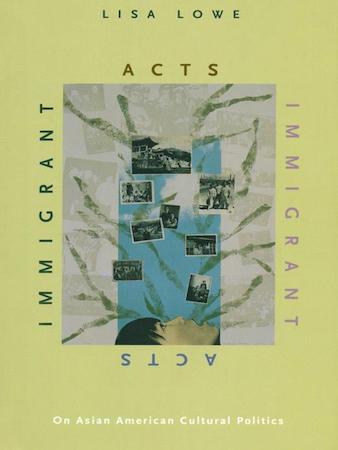
Immigrant Acts: On Asian American Cultural Politics by Lisa Lowe
Immigrant Acts is a well-researched, nuanced look at how Asian American culture and identity have been constructed in the U.S. today. Lowe offers acute analysis of Asian American texts (such as No-No Boy), legal proceedings, and historical events—including the history of interracial division within Asian America. In order to better understand the systems of inequity—like racism, capitalism, and neoliberalism—that help shape and reinforce anti-Asian violence, this academic study is a must-read.
Minor Feelings: An Asian American Reckoning by Cathy Park Hong
A radical look into the reality of walking through the world as an Asian American, Cathy Park Hong’s Minor Feelings weaves the personal with the political and brings the tough questions around race and identity to the table. The title phrase, “minor feelings” refers to the sense of American optimism that is often forced onto Asian Americans; consequently, Asian Americans often experience a cognitive dissonance that creates a sense of failure. Going beyond the theoretical, Hong grounds us in lived experiences that perhaps create more questions than answers, and opens the table for actual discussion.
Model Minority Imperialism by Victor Bascara
Asian American racialization, economics, and the U.S. empire take center stage in this academic study. Analyzing geopolitical events alongside media representations of Asian America, Bascara tracks how the model minority myth and Asian American assimilation interact with American imperialism. Ultimately, Model Minority Imperialism challenges readers to examine the current-day U.S. empire, particularly how it is rooted in racial exclusion.
Asian American Dreams: The Emergence of an American People by Helen Zia
Asian American Dreams looks into the time period when the Asian population in America grew and Asian American identity began to form. The daughter of Chinese immigrants, Helen Zia was born in 1950s America when there were only 150,000 Chinese Americans in the country. From the murder of Vincent Chin to the LA Riots, this book is a historical and personal account of the events that have transformed Asian identity in America. Zia is also the author of Last Boat Out of Shanghai: The Epic Story of the Chinese Who Fled Mao’s Revolution, a dramatic account of the real-life stories of those who fled China during the Cultural Revolution, when Zia’s family first left for the States.
The Unpassing by Chia-Chia Lin
Chia-Chia Lin’s debut novel The Unpassing tells the story of a Taiwanese immigrant family of six struggling to make ends meet in Anchorage, Alaska. Against the bleak and cold backdrop of Alaskan winter, ten-year-old Gavin contracts meningitis at school, falls into a coma and wakes a week later to find out his little sister Ruby was infected and died. As grief envelops the family, we see the remaining five members of the family struggle to stay afloat, navigate marginalization and alienation, and search for a sense of belonging in a foreign land. What does it mean to lose the ones you love in a place that is not home? What does it mean when there is no home to return to?
No-No Boy by John Okada
No-No Boy received practically no public recognition upon its publication in 1957, when Americans wanted to leave behind the atrocities of WWII—including the Japanese American internment and the nuclear bomb. Thanks to the efforts of Asian American writers Jeff Chan, Frank Chin, Lawson Fusao Inada and Shawn Wong who reissued the novel in 1976, No-No Boy is now recognized as a canonical Asian American text, one that deals head-on with the long history of anti-Asian racism.
The protagonist, Ichiro Yamada, refuses to serve in the American army and pledge loyalty to the U.S., remembering how the same country forced him and his family into internment. Because of his “No”s, Ichiro is forced to go to prison; and finds himself the target of his community’s anger upon his return. Okada’s novel examines both the collective and individual trauma of racialized violence against Japanese Americans.
I Hotel by Karen Tei Yamashita
This wide-ranging novel centers on “I Hotel”—short for the International Hotel in San Francisco—as a way to explore the Yellow Power Movement in the ’60s. The Yellow Power Movement—started by UC Berkeley students who were inspired by the Black Power Movement—is credited with coining the term “Asian American”. I Hotel is meticulously researched, including memorabilia like pamphlets and news clippings from the era; it is also radical in experimentation as well as content, exploring with multimedia modes like comic strips. Yamashita poignantly conveys the historical struggle for Asian American rights, and the many shifting identities the term “Asian American” can encompass.
The Leavers by Lisa Ko
Set in both New York and China, The Leavers follows a Chinese American boy whose undocumented mother Polly vanishes one day. Deming Guo—later renamed Daniel Wilkinson by his white adoptive parents—is forced to reckon with what it means to be an “all-American” whose sense of belonging has vanished. What does it mean to belong? Does assimilation mean learning a new language, a new home, a new family, a new house, or a new name? And what happens to the person you used to be?
America is Not the Heart by Elaine Castillo
In Castillo’s debut novel, Hero De Vera moves from a politically turbulent Philippines to suburban San Jose. America is Not the Heart explores social inequity and racism amidst the Filipinx American community, as well as what it means to pursue the “American Dream.” Castillo also pays careful attention to the code-switching that often happens for immigrant families; her characters speak Spanish, Tagalog, Pangasinan, and Ilocano. The title nods to Carlos Bulosan’s groundbreaking novel from the 1970s, America is in the Heart, which describes a Filipino migrant worker’s experiences with brutal racism on a California farm. For more books on Filipinx America, check out Castillo’s reading list.
About the Authors
Jae-Yeon Yoo is an MA candidate in English at New York University.
Stefani Kuo (郭佳怡) is a poet/playwright/performer and native of Hong Kong and Taiwan. She received her B.A. from Yale and is an MFA Playwriting Candidate at the Yale School of Drama. Fluent in Cantonese, Mandarin, French, and English, she is interested in crafting multicultural, multilingual narratives for an international audience. She has been an awardee of the Jerome Fellowship at PWC, Dramatist Guild Fellowship, finalist for the National Playwrights Conference, Jerome fellowship at Lanesboro Arts Centre, Many Voices Fellowship at PWC, the Working Farm with SPACE on Ryder Farm, Van Lier New Voices Fellowship, NAP Series, DVRF Playwrights’ Program, BRIC Lab, semi-finalist for the Page 73 Playwriting Fellowship, Princess Grace Fellowship, Ground Floor at Berkeley Rep, Scratchpad Series at Playwrights Realm. Her play, Architecture of Rain, premiered at the Iseman Theatre at Yale and received a reading in the DVRF Roundtable and Checkmark Theatre Company series. She has received commissions from the Rubin Museum, Roundhouse Theater Company, and Yangtze Repertory Theater Company. Her play delicacy of a puffin heart was produced with the 2018 Corkscrew Theatre Festival and The Parsnip Ship. Her play on the Hong Kong protests, Final Boarding Call,will be presented as a virtual reading co-produced by WP and Ma-Yi Theater Company in March 2021, and was workshopped as a part of the 2020 Bay Area Playwrights Festival at Playwrights Foundation and the 2020 Irons in the Fire Series with Faultline Theater Company. It was also a semi-finalist for Barrington Stage’ Company’s Burman New Play Award. Her play on the work of Dr. Wu Chien-Shiung, the only Chinese woman to work on the Manhattan Project, will be workshopped and co-presented by the Kitchen and Ma-Yi Theater Company in March 2021. She was a member of Interstate-73, Page 73’s Writers Group, in 2019. Her work in creative non-fiction, poetry, and translation have appeared in The New York Times, China Hands, Yale Literary Magazine, and more. Her poetry has been displayed as an installation piece, as part of Berlin Art Week 2017 at the Centre of Substructured Loss. She is represented as a playwright by Kevin Lin at CAA and Jacob Epstein at Lighthouse Management. (www.stefanikuo.com)




